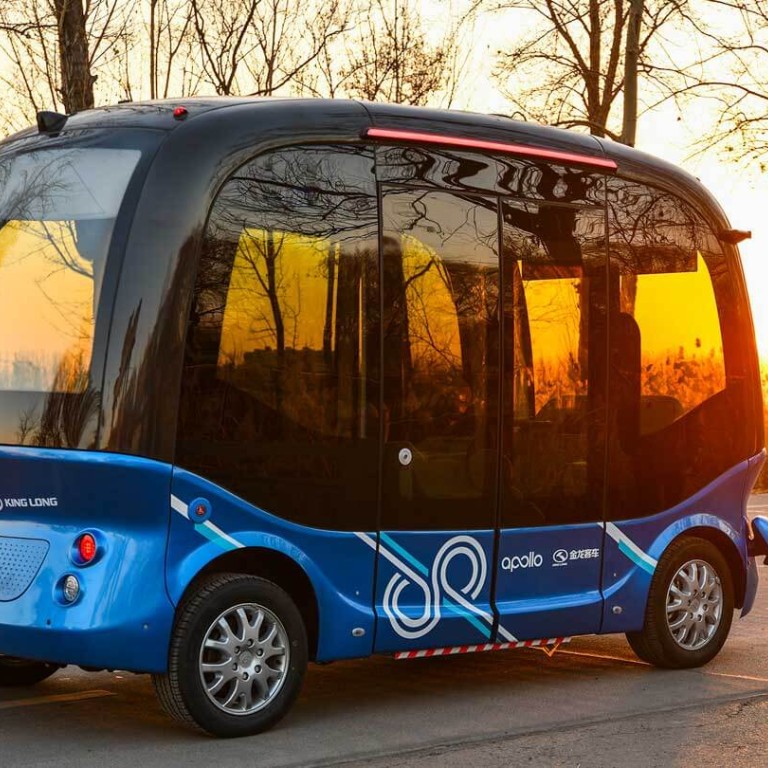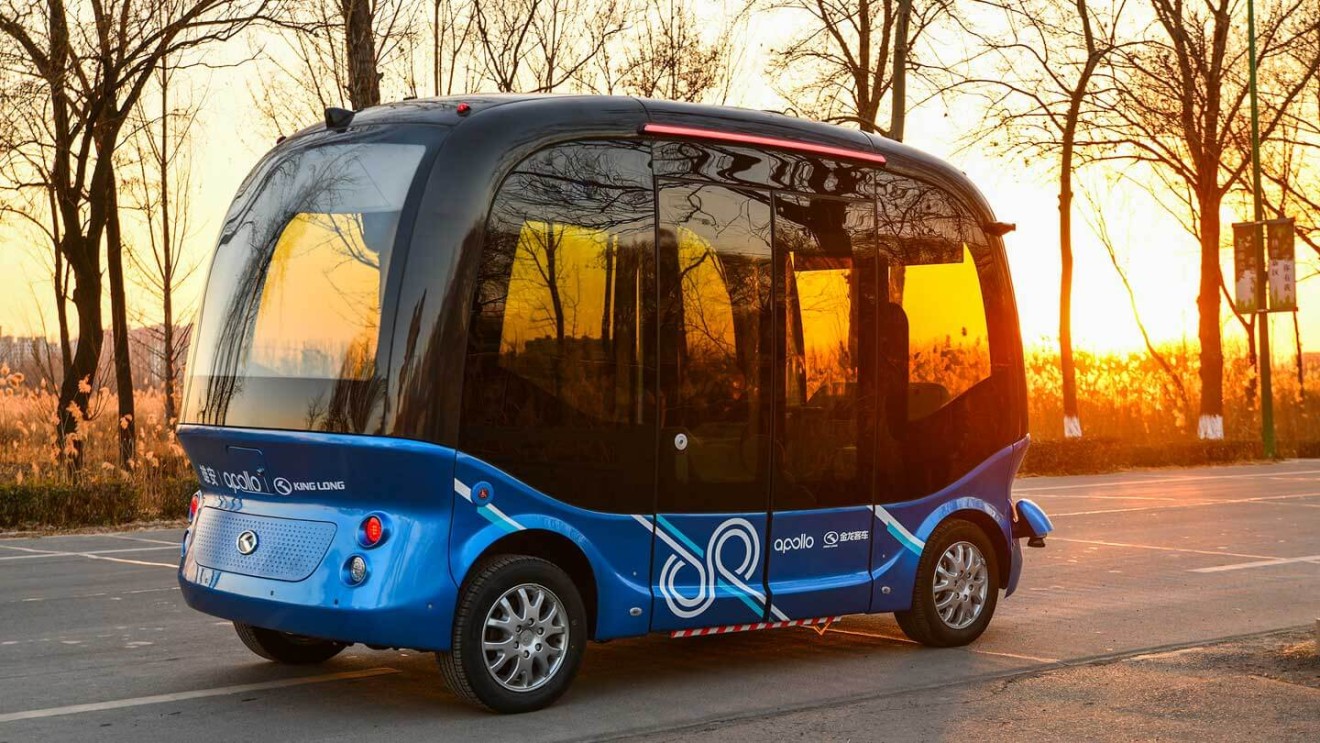Advertisement
Advertisement

Baidu says mass-production of its self-driving vehicles will start in July
100 autonomous buses to be deployed in confined areas
This article originally appeared on ABACUS
In the US, Tesla and Uber are still reeling from fatal crashes involving their autonomous vehicles earlier this year. But in China, Baidu is going ahead with its plans to put driverless buses on the road.
Baidu CEO Robin Li says mass production will begin in July for 100 self-driving electric vehicles using Baidu’s open source autonomous driving software, Apollo, according to Chinese media. The buses will be made in collaboration with Chinese bus maker King Long.
Baidu says each bus will be able to carry 14 passengers, with 8 seated, and no driver’s seat. For now, they will only be used in confined areas such as tourist spots and airports.

Baidu, which operates China’s most popular search engine, has been aggressively investing in AI as growth in its search business slows. But recent data compiled by California’s Department of Motor Vehicles showed that Baidu’s self-driving cars didn’t perform as well as those from Google’s sister company Waymo.
The report showed that between October 2016 and November 2017, human drivers had to take over the wheel in Baidu’s self-driving vehicles every 41 miles, compared to Waymo’s every 5,596 miles.
But that hasn’t cooled Baidu’s ambitions. After Uber’s fatal accident in March, Baidu's Li said his company would continue to develop autonomous cars, saying they are much safer than cars driven by humans.
How China and the US are steering self-driving cars
For more insights into China tech, sign up for our tech newsletters, subscribe to our Inside China Tech podcast, and download the comprehensive 2019 China Internet Report. Also roam China Tech City, an award-winning interactive digital map at our sister site Abacus.
For more insights into China tech, sign up for our tech newsletters, subscribe to our Inside China Tech podcast, and download the comprehensive 2019 China Internet Report. Also roam China Tech City, an award-winning interactive digital map at our sister site Abacus.

Post
